Beaten and Broken
Handlers repeatedly hit the animals with anything at hand—including hard-plastic pipes, ropes, metal chains, and whips—to keep the exhausted animals working. Even when they’re simply too spent to go on, they’re viciously beaten. When a donkey balked at carrying more tourists after just having finished a tour, the handler kicked him in the stomach so hard that even a bystander recoiled. Although the animal attempted to escape the onslaught, he was held by a rope and unable to run away.
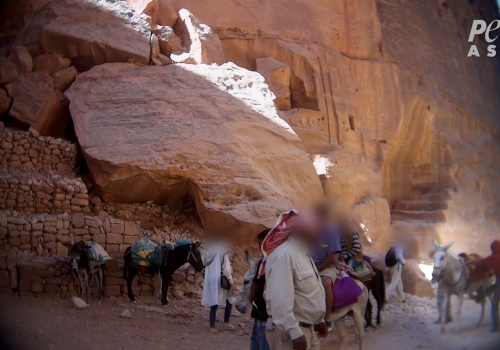
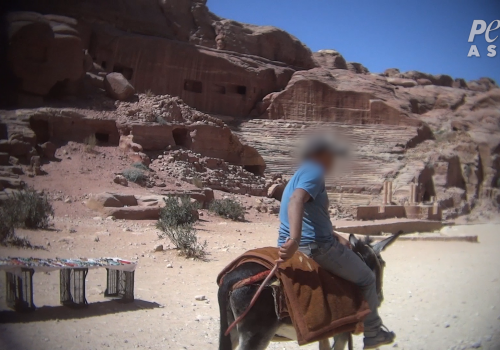
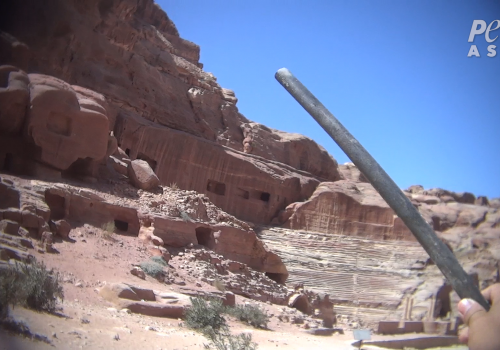
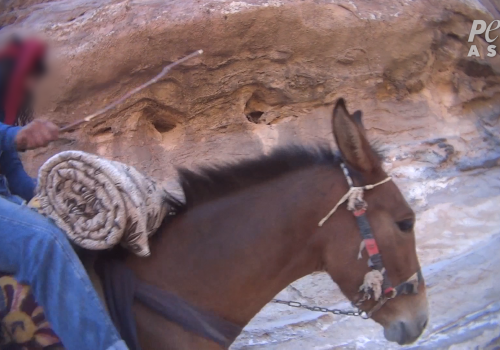
Hot and Thirsty
Despite working all day in the desert heat, these animals are deprived of water until they return to the stables—the only source of water in the Petra Archaeological Park. Between rides, they’re tied up, with no shade or other respite from the heat. Some ropes are tied so tightly that animals can’t even lie down and must remain standing until the next paying customer arrives.
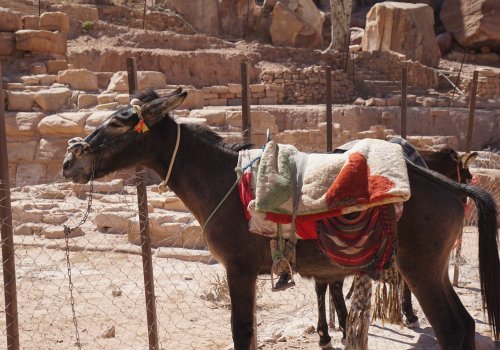
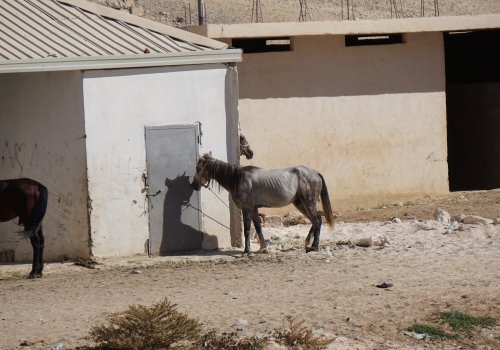
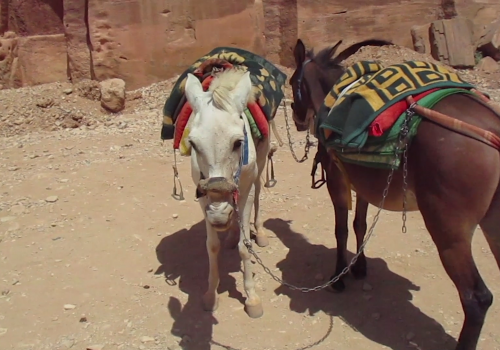
Wounded and Bleeding
Many animals sustain wounds because the metal chains and ropes are tied so tightly that they gouge their skin. A PETA eyewitness saw camels forced to work with fly-infested, open wounds caused by their bridles being pulling too hard. Donkeys were found with metal chains around their necks that were stained with blood from their injuries. While some areas of Petra are accessible only by the able-bodied, Jordan can and should replace Petra’s working horses, donkeys, mules, and camels with modern motorized vehicles to allow these animals to lead a better life, one that’s free of suffering. Cruelty to animals should be banned in any society, especially a modern one grounded in the holiest of teachings.
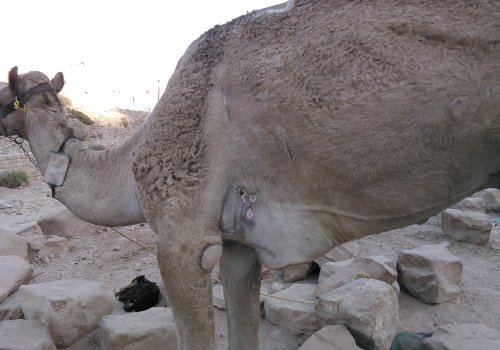
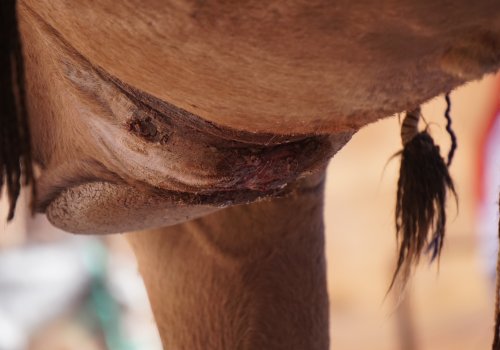
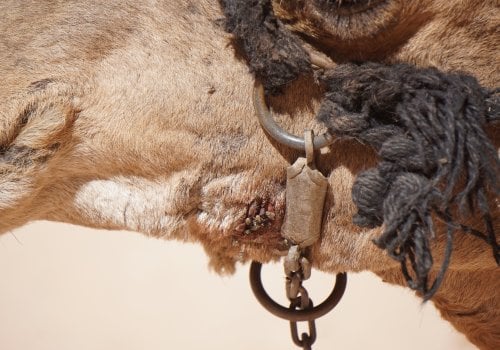
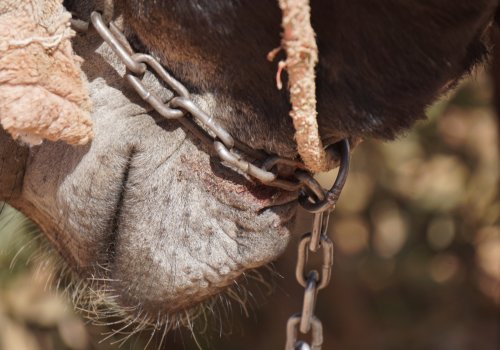
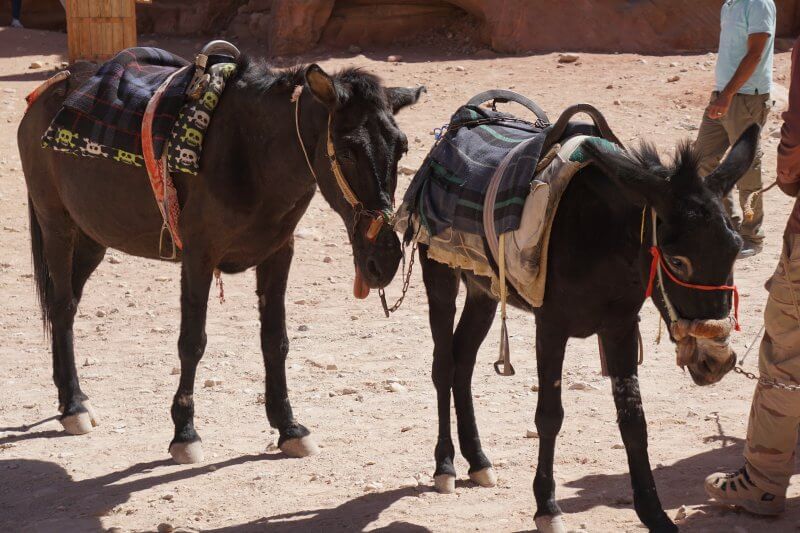
Take Action Now
Please speak up for horses, donkeys, mules, and camels suffering in Petra by refusing to ride them at the historical site and urge UNESCO to act now.
